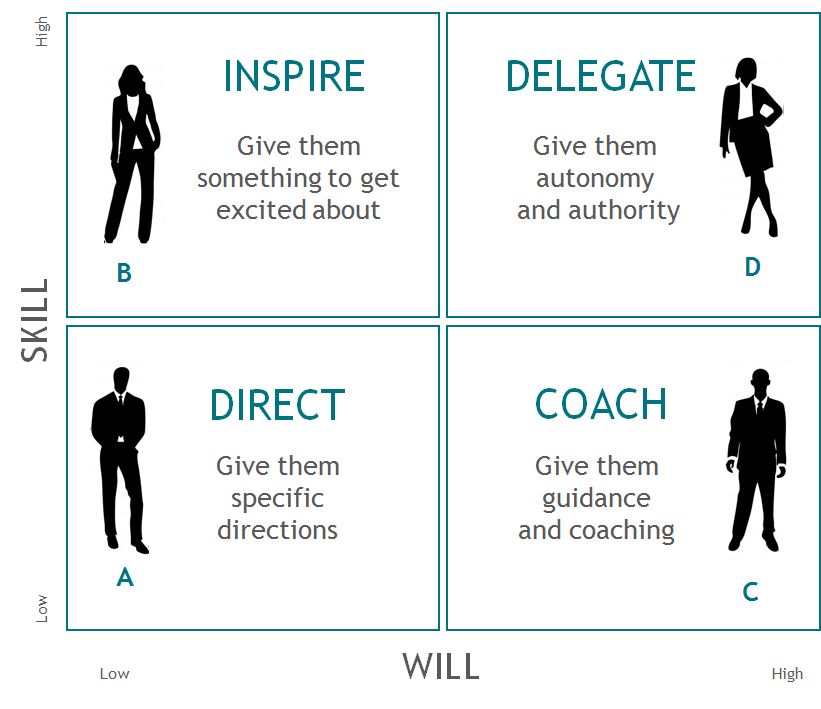Four ways to re-ignite your team

At an Executive Workshop I ran this week, I was asked by a senior manager for specific advice for motivating, delegating increasing team performance. This is a common request but he seemed particularly troubled. I asked him to tell me a little more about his team.
“My team is made up of some significantly different personalities. They seem motivated by different things, their ability to do the job varies and I have one lady, Desi, who is by far and away the best, in fact she doesn’t need managing at all”.
This last statement rang an alarm bell, but I parked that for a moment. “Tell me about the others,” I asked. “What makes them so different?”
“Andrew, who is my Reward and Compensation Manager, is my weak link. He is out of the door at 5.30 and hasn’t yet grasped the significance of managing his key stakeholders like the Sales Directors on an ongoing basis. Benita is far better, she knows our payroll system inside out but she is another one who doesn’t seem that enthusiastic. Conor is young and still has a lot to learn but he is as keen as mustard. As you can see – all very different.”
I could see his challenge – there was no one-size-fits-all approach for his team, and while he was keeping a close eye on Andrew, he risked Desi becoming bored and moving on. This was the perfect opportunity to introduce the Skill-Will matrix to the group, which although simple, is a great way of applying an adaptive management style across a diverse team. “Skill” is about how skilled they are to do that specific job; “Will” is about how motivated they are in their current job.
This is what I drew on the flip-chart:

- A. People with low Skill and low Will, like Andrew, need both training and motivating. Find out what motivates him as a person, and link that drive to his work. He will need plenty of direction and support which does take management time, but maybe the learning process can be motivating too. If he is bored stuck in the office, send him out visiting his key stakeholders and help him develop a contact strategy with these key people. He will certainly understand the significance of consistent stakeholder management and its rewards when he returns!
- B. For Benita, with high Skill but low Will, we also need to find a motivational need and a way to build on her high Skill level. Maybe she is bored and needs to be stretched, needs more recognition or more responsibility. Help Benita find an initiative which will require her considerable skills but will give her exposure to new things – perhaps bringing a system review element to her remit.
- C. High Will and low Skill is probably the easiest group to deal with. Connor will need guidance initially and monitoring from a distance but the high motivation will keep him wanting to learn more. He is your future star player.
- D. Desi, with high Skill and high Will may seem to need little managing but danger lies just around the corner. Rather than leaving her alone, she will need new challenges to keep her motivated. Delegating more responsibilities and some projects that will stretch her will keep her engaged and also contribute to her career progression. The main thing with the high Skill, High Will person is to never micro-manage them. In the words of Jack Welch, a manager “needs to just get out of their way and let them get on with it”. You are available as a sounding board and not as an enforcer. Holding the reins tightly with these people is a recipe for disaster. They will, given the opportunity, leave you and join a manager who will empower them instead and because they are very good, they can choose.
It is inevitable that a team, large or small, will contain individuals with different levels of ability and drive. An adaptive management style, a bit of imagination and an understanding of varying needs will help move the entire team to the High Skill High Will quadrant – and maintain top performance and productivity. As a manager, you will also have an enhanced reputation for building teams and retaining key talent.
Olwyn Merritt
